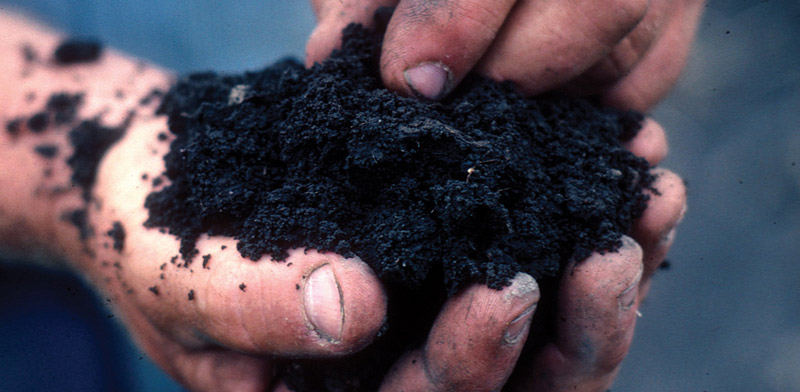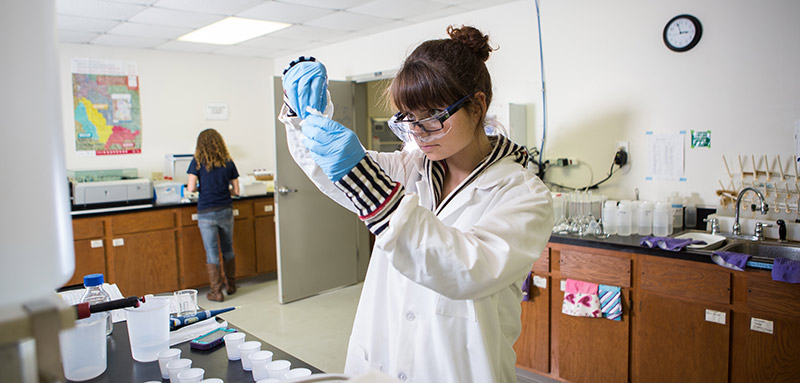Undergraduate Programs
Why should I major in Crop Science?
This program creates a well-rounded understanding of all areas of crop science—from crop and pest management to genetics and breeding. Graduates advance to graduate school or begin careers in production agriculture, with chemical and seed companies, public agencies, or agricultural research.
What can I do with a degree in Crop Science?
There are multiple career options for an Crop Science graduate. The various aspects of the crop science industry allow for graduates to pursue a wide range of areas to find a career path that matches their interests.
- Agronomist
- Crop Scout/Consultant
- Precision Ag Specialist
- Plant Breeder
- Chemical Sales Rep
- Seed Production
- Research Associate
- Soil Technician
- Field Development Specialist
- More Career Options
What does an Crop Science major study?
The course of study for Crop Science majors offers some flexibility for students to take courses that coincide with their academic and career goals.
Semester-by-Semester Degree Plan:
To view degree plans prior to 2019-2020, see the Crop Science Degree Plan Archives.
How can a Crop Science student be involved?
The Crop, Soil, and Environmental Sciences Department and the University offer a variety of outlets for students to gain professional development experiences.
Why should I major in Environmental, Soil, and Water Science?
Environmental, Soil, and Water Science majors receive knowledge and training in technology, science and hands-on application critical for the sustainable use of natural resources. Graduates are in high demand for positions in environmental research, consulting, parks and recreation, state and local agency services, and more.
What can I do with a degree in Environmental, Soil, and Water Science?
There are multiple career options for an Environmental, Soil and Water Science graduate. The diverse areas of this industry allows for graduates to pursue careers in fields that match their interests.
- Conservation Officer
- Hydrologist
- Wetlands Preservation
- County Extension Agent
- Environmental Health & Safety
- Fisheries Biologist/Technician
- Government Forestry Technician
- Environmental Consultant
- Nutrient & Water Management Specialist
- GIS Analyst
- More Career Options
What does an Environmental, Soil, and Water Science major study?
The course of study for Environmental, Soil and Water Science offers flexibility for students to select courses that help them meet academic and career goals.
Degree Plan Checksheet:
Undergraduate Student Handbook:
Semester-by-Semester Degree Plan:
To view degree plans prior to 2019-2020, please see the Environmental, Soil and Water Science Degree Archives.
How can an Environmental, Soil, and Water Science student be involved?
The Crop, Soil, and Environmental Sciences Department and the University offer a variety of outlets for students to gain professional development experiences.
The Department of Crop. Soil and Environmental Sciences offers four undergraduate minors for students to supplement their undergraduate major with. Why get a minor? Choosing a minor is a great way to customize your undergraduate degree plan to meet specific academic and professional goals. Minors look great on a resume and often allow a student to study an area of interest while fulfilling the elective requirements of their major.
Minors in CSES include:

